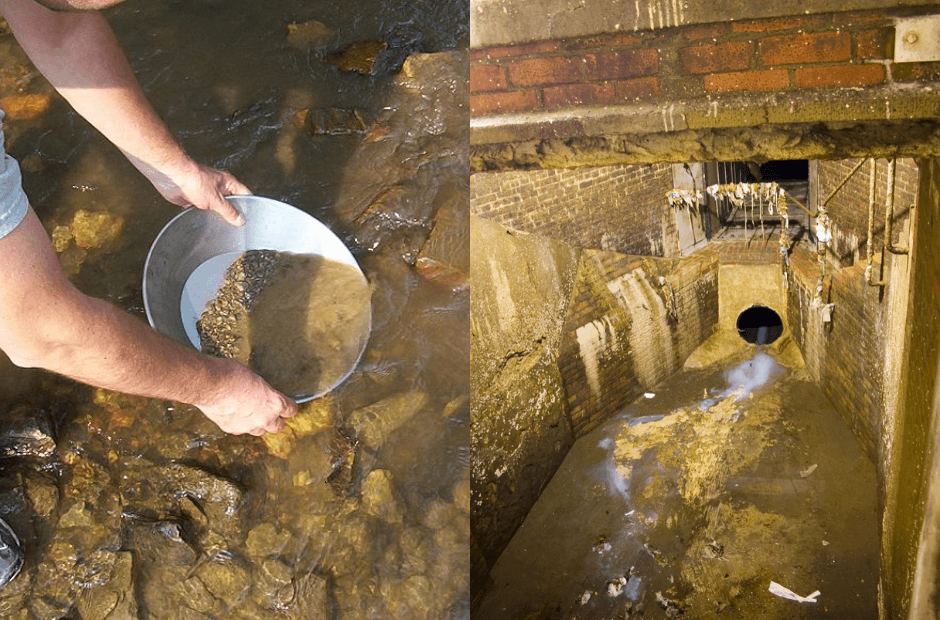The Brussels' universities VUB and ULB are working together on a project to mine the Brussels' sewers for gold, silver and other precious metals.
The goal is to develop a cheap and green way to harvest precious metals like gold and silver from the sludge residues of the sewage treatment plants, where they often end up mixed with other heavy metals like copper, zinc and lead, of the Brussels-Capital Region.
“Extraction and recycling of metals from sewage sludge is not only a way of meeting the metal scarcity, it also makes it possible to turn a toxic waste product into a fully-fledged source of raw materials," Dr Natacha Brion, the project coordinator, said.
70 kg of silver per year
"If we look at the amount of sludge in the whole Region, we can expect to find about 5kg of gold and 70 kg of silver yearly," she added, reports VRT NWS.
At the moment, the researchers are trying to map out how big the potential findings could be. "Over the last six months, we have found 0.5 to 1 gram of gold per tonne of dry sludge in these samples, and 5 to 10 grams of silver," Brion added.
First, researchers study the amount of precious and heavy metals found in the sludge by carrying out measurements in sludge samples from two Brussels treatment plants.
After that, they will investigate how these metals can be extracted from the sludge in an environmentally friendly way. The researchers will investigate whether they can use special bacteria to “wash” metals from the sludge.
Natural ores to be exhausted in about 20 years
Lastly, VUB and ULB scientists will attempt to purify and recycle the precious metals from the metal mixture, also in an environmentally friendly way. For example, specific gold-binding nanomaterials with magnetic properties that can be removed from the metal mixture with a magnet after bonding.
It is estimated that natural ores, which are aggregations of one or more mineable minerals and the traditional sources for metals such as lead, tin, zinc, gold and silver, will be exhausted in about 20 years.
The three Brussels research groups, VUB's Analytical, Environmental and Geo-Chemistry, ULB’s Engineering of Molecular NanoSystems and Meurice R&D of the Haute Ecole Lucia de Brouckère, are working together on the project as the reuse of metals will therefore become increasingly important, as will the search for ores in hard-to-reach places.
The research programme started in March 2019 and will continue until the end of February 2022.
Maïthé Chini
The Brussels Times

